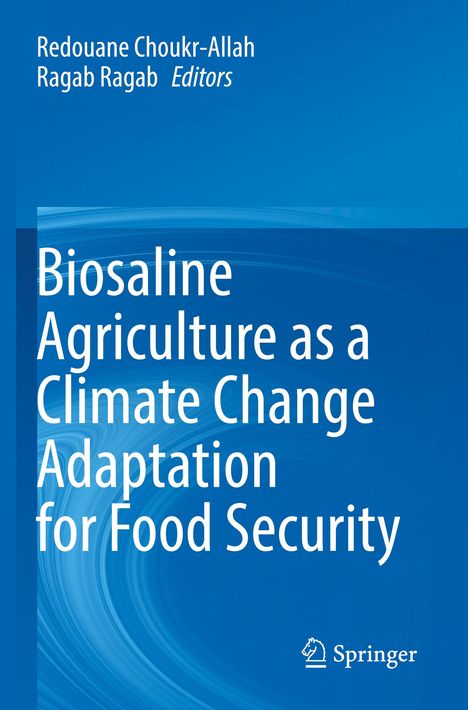Biosaline Agriculture as a Climate Change Adaptation for Food Security
Biosaline Agriculture as a Climate Change Adaptation for Food Security
Buch
- Herausgeber:
- Ragab Ragab, Redouane Choukr-Allah
- Verlag:
- Springer Nature Switzerland, 03/2024
- Einband:
- Kartoniert / Broschiert, Paperback
- Sprache:
- Englisch
- ISBN-13:
- 9783031242816
- Artikelnummer:
- 11786413
- Umfang:
- 444 Seiten
- Nummer der Auflage:
- 2023
- Auflage:
- 2023
- Gewicht:
- 668 g
- Maße:
- 235 x 155 mm
- Stärke:
- 24 mm
- Artikelnummer:
- 11786413
- Erscheinungstermin:
- 1.3.2024
- Hinweis
-
Achtung: Artikel ist nicht in deutscher Sprache!
Weitere Ausgaben von Biosaline Agriculture as a Climate Change Adaptation for Food Security |
Preis |
|---|
Klappentext
This book presents recent research work on Biosaline Agriculture presented during First International Forum on Biosaline Agriculture in Laayoune, Morocco from May 3rd to May 4th 2019.The aim of this book is to showcase the global potential of Biosaline agriculture, provide an update on the development of recent innovations in the field of Biosaline agriculture, the best management practices to safely use brackish and saline water, highlight the use of non-conventional water in marginal environment production and the current advanced technologies of desalination of brackish and seawater.
The different chapters will also discuss solutions that are adapted to local conditions as part of a sustainable development perspective.
The book provides up-to-date technical and scientific data on growing crops under marginal environment so as to encourage the dissemination of this knowledge in the best practices to increase the productivity in Biosaline agriculture, in view of the potential to contribute to food security. The book is expected to stimulate interest in the non-conventional water resources and crops among junior and senior researchers and among those who are increasingly focused on exploiting marginal environments. It will also be of interest to decision-makers and the public and private sectors to jointly address the issues of food security especially of the poor and vulnerable people living in marginal environments worldwide by providing innovative technology transfer.


